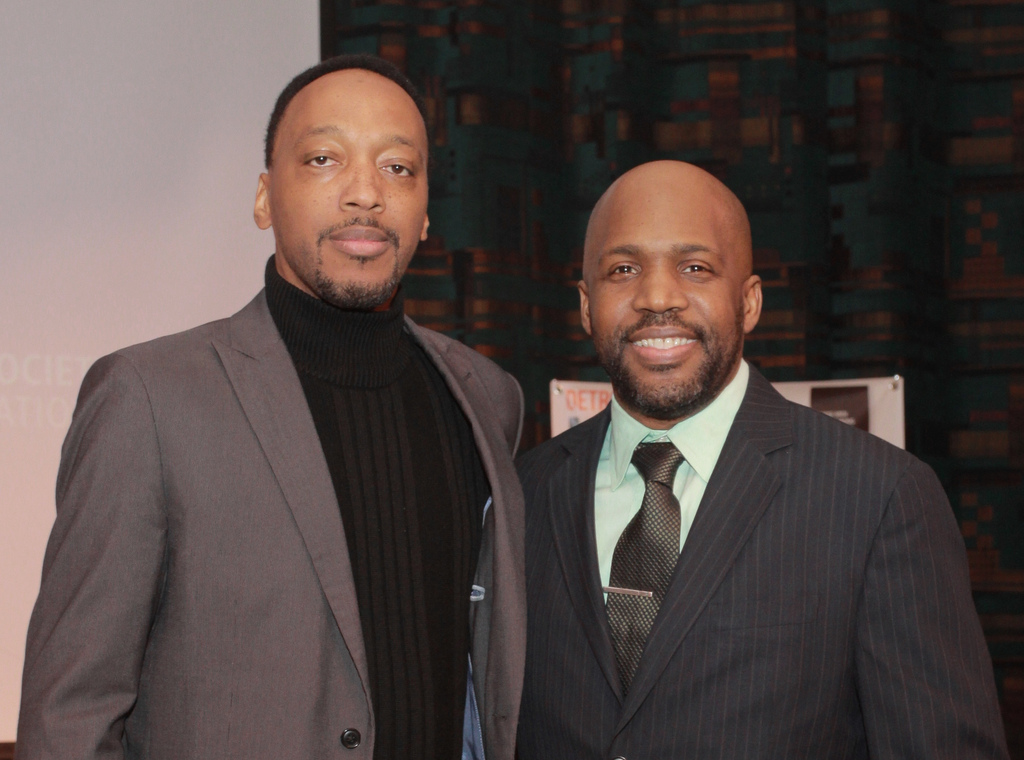
Better together
Trabian Shorters (above left) is founding CEO of BMe Community and former vice president of communities at Knight Foundation. The following is cross-posted from The Miami Herald. Photo credit: Flickr user Knight Foundation.
President Obama’s “My Brother’s Keeper” initiative to improve opportunities for boys and men of color is in step with our times.
Three years ago, I sat with George Soros and an eclectic group of black leaders in a small New York hotel room, courtesy of Shawn Dove of the Campaign for Black Male Achievement. Soros explained why being a Hungarian Jew who lived through the Holocaust helps him to see dangerous patterns that threaten democratic society. DOWNLOAD
“A Statement from the Executives Alliance on the New White House Initiative, My Brother’s Keeper” (PDF format) from Executives’ Alliance to Expand Opportunities for Boys and Men of Color
“An Initiative to Advance Achievement of and Opportunity For Boys and Young Men of Color: Philanthropic Statement of Support” (PDF format)
Over the past five years, Soros has pledged about $80 million of his own money to support a healthier America by helping black males out of the dangerous patterns that threaten them. In August 2011, his friend Michael Bloomberg announced a similar $127 million public-private initiative in New York, which included $30 million from Soros.
Bloomberg and Soros were the boldest but certainly not the only philanthropists to take this position. In April 2013, five foundation leaders convened their peers on this subject: Bob Ross, president of The California Endowment; Ken Zimmerman, director of U.S. programs for the Open Society Foundations; Alberto Ibargüen, president of the John S. and James L. Knight Foundation; Risa Lavizzo-Mourey, president of the Robert Wood Johnson Foundation; and Emmett Carson, president of the Silicon Valley Community Foundation. By the end of the day more than two dozen foundation heads had signed a pledge to create more opportunities for boys and men of color.
These leaders, who are fiercely independent, all agree that America is better off when more boys and men of color are able to fully participate in society. That’s a historic decision and it marks a potential turning point. These commitments are a first for philanthropy and a first for a U.S. president.
Even though Jim Crow-style laws still sit on the books and legacy media still parades negative images of black and brown males through our minds constantly, their days are numbered. There are simply too many black and brown men and their friends of all races and genders – patriots, students, entrepreneurs and donors – who are in positions of influence and see boys and men of color as assets to society. Here are examples of what I mean:
- Patriotic: Twenty-five percent of black men in America are already military veterans. No other group serves their country in as high a proportion.
- Aspiring: More than 2 million black men have at least one college degree, and about 1.4 million are in college now.
- Enterprising: The percentage of black people who create businesses is growing at more than twice the national average, and 60 percent of those entrepreneurs are black men.
- Generous: Black households give 25 percent more of their income to charities than do white households.
Patriotic, aspiring, enterprising and generous are everyday attributes of black males. We all actually know and experience black men in the categories above. That’s reality. I founded BMe Community because I believe we can have more caring and prosperous communities inspired by black men.
But to do that, we must appreciate them as assets, engage them and their friends on the values we have in common and endeavor to “build” together rather than to “fix” each other.
BMe Community is a fast-growing mission-driven social enterprise that works to “build caring and prosperous communities, inspired by black men.” Headquartered in Miami, BMe has thousands of members across the country, and operates a news and content service and the BMe Leaders program in Baltimore, Detroit and Philadelphia. In the last year, 70 BMe Leaders have helped more than 65,000 of their neighbors in areas ranging from mentoring and education to public safety and financial health. BMe was created with funding from the John S. and James L. Knight Foundation, the Open Society Foundations and The Heinz Endowments, as well as individual donations.
Recent Content
-
Community Impactarticle ·
-
Community Impactarticle ·
-
Community Impactarticle ·


